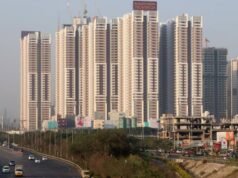
The Supreme Court’s decision to hear the challenge to Telangana government’s order to raise the quota for OBCs in local bodies coincides with similar moves by States like Madhya Pradesh and Chhattisgarh. File
| Photo Credit: The Hindu
The Supreme Court is scheduled to examine on Monday (October 6, 2025) a petition challenging an order issued by the Revanth Reddy government in Telangana enhancing the Backward Classes’ quota in municipalities and panchayats to 42%, leading to the gross reservation in local bodies to 67%.
The petition raised the question whether States can increase the total reservation of seats in local bodies to breach the 50% ceiling. The Telangana State Election Commission has notified the panchayat election process in the State to commence from October 9. Polling will take place in two phases on October 23 and October 27.
A Bench of Justices Vikram Nath and Sandeep Mehta is scheduled to hear the petition, filed by agriculturist Vanga Gopal Reddy, represented by advocate Somiran Sharma, challenging the government order issued by Telangana on September 26.

“Together with the existing 15% for Scheduled Castes and 10% for Scheduled Tribes, the aggregate reservation exceeds 67%, directly violating the 50% ceiling judicially prescribed by the Supreme Court,” the petition argued before the top court.
The 50% ceiling rule in reservation was established by a nine-judge Bench of the Supreme Court in the Mandal Commission case judgment of 1992.
The Supreme Court’s decision to hear the challenge to Telangana government’s order to raise the quota for OBCs in local bodies coincides with similar moves by States like Madhya Pradesh and Chhattisgarh to augment OBC reservation in State services above the 50% reservation cap.
Similar law in M.P.
The top court is also scheduled to hear next week petitions challenging the legality of Section 4 of the Madhya Pradesh Lok Seva (Reservation for Scheduled Castes, Scheduled Tribes and Other Backward Classes) Amendment Act, 1994 as amended in 2019. The provision has increased the OBC quota from 14% to 27% with Madhya Pradesh arguing that though OBC formed more than half its population, the communities were “grossly underrepresented in education, government services and political institutions”. Madhya Pradesh has reasoned that the 50% reservation limit was only a “flexible guideline and not an immutable Constitutional bar”.
The September 26 order issued by Telangana had followed an attempt by the State to enact a law, The Telangana Backward Classes (Reservations of Seats in Rural and Urban Local Bodies) Bill, 2025, to enhance OBC seats in local bodies by 42%. However, the petition said, the Bill was neither assented to by the Governor nor by the President.
“This by itself shows that the increase in reservations in excess of 50% cap is impermissible in the eye of law and contrary to the law laid down by the Supreme Court through its various judgements,” it submitted.
Mr. Reddy said the Telangana government’s order augmenting OBC quota in local bodies violated Section 285A of the Telangana Panchayat Raj Act, 2018, which expressly codified the 50% ceiling in conformity with the Supreme Court’s 2010 judgment in K. Krishna Murthy versus Union of India.
“Despite this statutory bar, the State has sought to enforce the impugned Government Order, thereby acting ultra vires the Constitution as well as the statute,” the petition said.
The Krishna Murthy judgment had concluded that “the nature and purpose of reservations in the context of local self-governments is considerably different from that of higher education and public employment… The upper ceiling of 50% vertical reservations in favour of SCs/STs/OBCs should not be breached in the context of local self-government”.
The petition referred to the top court’s 2021 decision concerning Maharashtra local bodies’ elections in the Vikas Kishanrao Gawali case, which had reiterated that the 50% cap cannot be breached.
Mr. Reddy contested that the reliance placed by the State of Telangana on Articles 243D(6) and 243T(6), which empower States to provide for reservation of seats for Backward Classes in panchayats and municipalities, was wholly misconceived.
“While these Constitutional provisions empower a State Legislature to make reservations for Backward Classes in local bodies, the enabling power is subject to constitutional limitations, including the judicially imposed 50% ceiling. The action of the State of Telangana, if permitted, would not only undermine the rule of law but also cause grave prejudice to citizens like the petitioner, who are entitled to contest and participate in local self-government elections on a level-playing field,” Mr. Reddy submitted.
Published – October 04, 2025 10:51 pm IST





